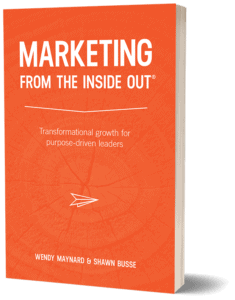In 2012, Twinkie fans taught us an important lesson about marketing: When it comes to company valuation, customer loyalty is king.
How to Prepare for a Media Interview and Get Great Press for Your Company
Tips for Talking to Reporters
We often have clients featured in the media. These stories typically feature a new product, service, or technology. I typically spend a couple of hours coaching them on how to speak with a representative of a newspaper, radio or television station.
When you send out a press release or are contacted by a reporter, it's essential that you are prepared and that you know what will help you succeed. You want to make sure you are communicating a consistent message that is in alignment with your brand.
I've put together the following tips to help you get great coverage for your company in the media.
Preparing for the Media Interview
- Prepare a single, key message with two or three secondary points you want to make.
- Gather facts, figures, and anecdotes to support your points.
- Anticipate questions the reporter might ask and have responses ready. Here are some ideas to get you started for what the reporter might ask:
-
- Briefly, what do you do?
- What is interesting about it?
- Is it something new or unique?
- Why is it important?
- Who or what benefits?
- Does it answer a need or address an issue in the community?
- Answer the traditional news questions: who? what? when? where? why? and how?
- Be prepared to comment on general industry trends.
- Analogies are strong, colorful and powerful. "It's like a Ferris wheel for a factory production line..."
- Precise statistics bring your information to life. "We're creating 2,300 new jobs this year..." "Osteoarthritis is the #1 disability in the United States."
- Personal experiences are credible and important. "When I joined this company, we only had..."
- Quotes from experts add credence to your comments. "Ben Bernanke also says..."
- Prepare a written summary of your key message, main points, and statistics to leave behind. Help give the reporters perspective and context (i.e., How many people are affected? When did the issue arise? Is this part of a national trend?).
How to Speak to Journalists
- Stick to your key message and 2-3 points. State the most important information first, then provide the background. Don’t be afraid to say your key message repeatedly, just vary the manner in which you say it.
- Don't push to get your company included in the story. Reporters hate being told how they should write.
- There is no such thing as "off the record." Don't say anything you don't want to see in print. Assume everything you say, even in a social situation, may appear in print or on the air (even after you think the interview is over, you can still be quoted).
- Be as helpful as possible. Your goal is to build long-term relationships with news organizations so they get in touch with you again.
- Don’t let the reporter get you off track. Many people make the mistake of talking too much or going off on tangents. Repeat your points if necessary to get back on track.
- Tell the reporter that you are making important points. For example:
"There are three important things every woman planning a pregnancy should remember: 1) take folic acid prior to trying to conceive, 2) abstain from drugs and alcohol, and 3) set up an appointment to speak with your doctor."
- Anticipate the reporter’s questions, especially the hard ones. Answer difficult questions as briefly as possible, then bridge to your key message.
- Bridging can turn the question to your points. Stay in control of the interview by listening for the larger issue behind the question and find the connection to your issue. Here are some examples:
"...yes, but that speaks to a bigger point...." "... I think what you are really asking is..." "The most important issue/fact is...." "What we really want to make clear is that ...."
- Use single, clear sentences to make your point. Don't continue talking after you make your point. Reporters often leave a space of silence to draw unintended remarks out of interviewees trying to "fill the space." Don’t get sucked in to the silence. Just smile.
- Talk in lay terms, using as little professional or technical jargon as possible. Tell stories and anecdotes that illustrate your point and give examples.
- Provide the reporter with a written summary of information, main points and statistics. Put in context of international/national trends. (i.e., How many people are affected? When did the issue arise? Is this part of a national trend?).
- Don’t hesitate to put the issue into perspective, even if the reporter doesn’t ask.
- Don’t overestimate a reporter’s knowledge of your subject. If a reporter bases questions on information you believe is incorrect, do not hesitate to set the record straight. Offer background information where necessary.
- Listen to each question carefully before responding. Ask for it to be repeated if you don’t understand it. Ask the reporter if you should clarify anything. If you do not have the answer, say so. Tell the reporter where to find the information, if possible.
- Don’t joke. Be friendly, but not complacent.
- The media is not your advertising firm. Their priority is to inform the public, not to be your spokesperson. A good reporter will write a fair, balanced story. Don’t be afraid of that, even if they are going to be talking to your competitors.
I hope these tips help your company improve your media interview skills. Once you’ve begun implementing these ideas, check back in and let us know how it’s going.


